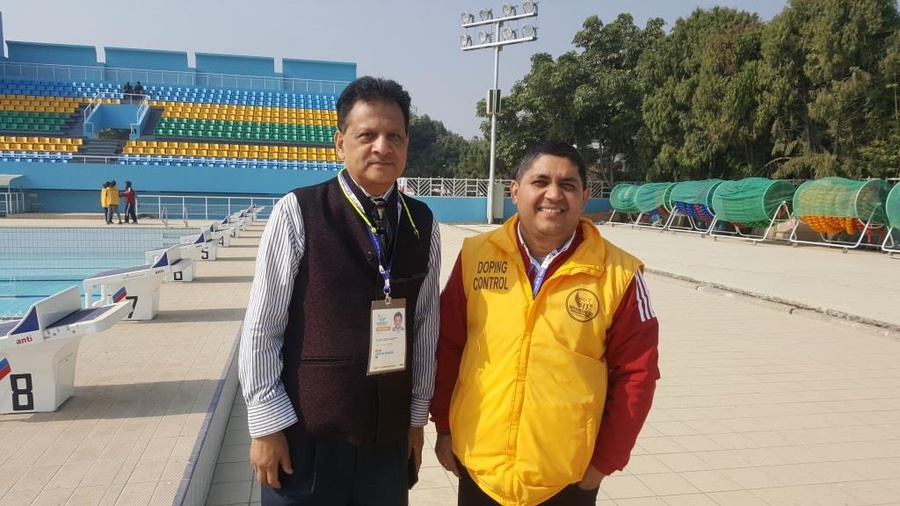Kathmandu, Nepal, December 5, 2019: The flu and cold season in Nepal is in full swing and Dr. Saroj Krishna Shrestha, Chairman of the Medical Commission of the Nepal Olympic Committee, hopes it will not translate into athletes testing positive at the 13th South Asian Games. Dr. Shrestha, who is in charge of Doping Control at the December 1-10 showpiece in Kathmandu and Pokhara, is worried that the easy access to drugs and antibiotics could result in athletes unknowingly getting on the wrong side of the law. “Drugs are available over the counter here in Nepal. You don’t need a prescription and things like Ephedrine, used to treat nasal congestion, is freely available. But this drug is on the banned list,” says Dr. Shrestha. Games organisers will carry out close to 150 drug tests on athletes. Already some 35 tests have been undertaken over the first four days, all seemingly on a random basis, but with some sports being targeted more. “Sports like swimming, weightlifting, boxing, taekwondo are all what is commonly-known in the trade as ‘high-risk’ sports because of a poor record. We will look at them more closely. For instance, all three medallists in the men’s 100 metres race in athletics were asked to give samples of their urine,” Dr. Shrestha revealed. Organisers have been forced to send the sealed urine samples taken from athletes to a WADA-approved laboratory in Qatar as one in neighbouring India had its accreditation suspended by the World Anti-Doping Agency. “It is proving to be more expensive for us as it can cost anything between US$200 to US$500 to test one sample. We are on a tight budget, yet we will carry out around 150 tests,” Dr. Shrestha explained. A team of 50 doctors and officials have been spread around the three cities hosting venues – there are two doping control offices in Kathmandu, one in Pokhara and one in Janakpur. On any other day, Dr. Samaj Gautam would be at work at the National Trauma Centre in Kathmandu, doing spine surgery. But during the course of the Games he is one of the volunteer doctors at Doping Control. “I also get a chance to watch some international sport for free. I’m a swimming fan,” smiles Dr. Gautam, as he oversees the doping control operation at the Satdobato Sports Complex which has five sports – swimming, shooting, karate, taekwondo and boxing. “It will take a turnaround of 10 days before we get the results of the urine samples from Qatar. I can’t hazard a guess and say if these Games will be doping-free until we get the results back,” Dr. Gautam said. Before the Games began, the Nepal NOC carried out tests on its own athletes picked on a random basis. There were no issues according to Dr. Shrestha. “That was done out-of-competition and all the tests came out clean. We have educated our athletes and everyone from coach to athletes know what is on the prohibitive list. But you never know who might be tempted to cheat,” added Dr. Shrestha.
Around 150 athletes to be tested randomly at South Asian Games



